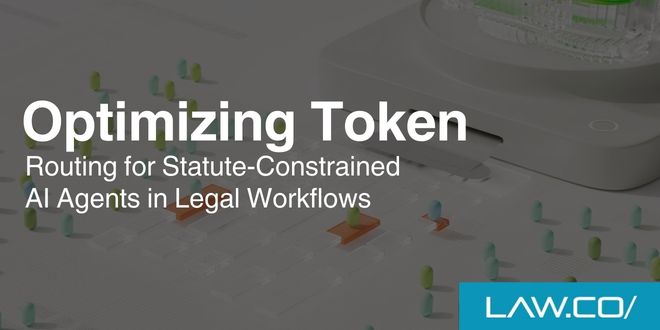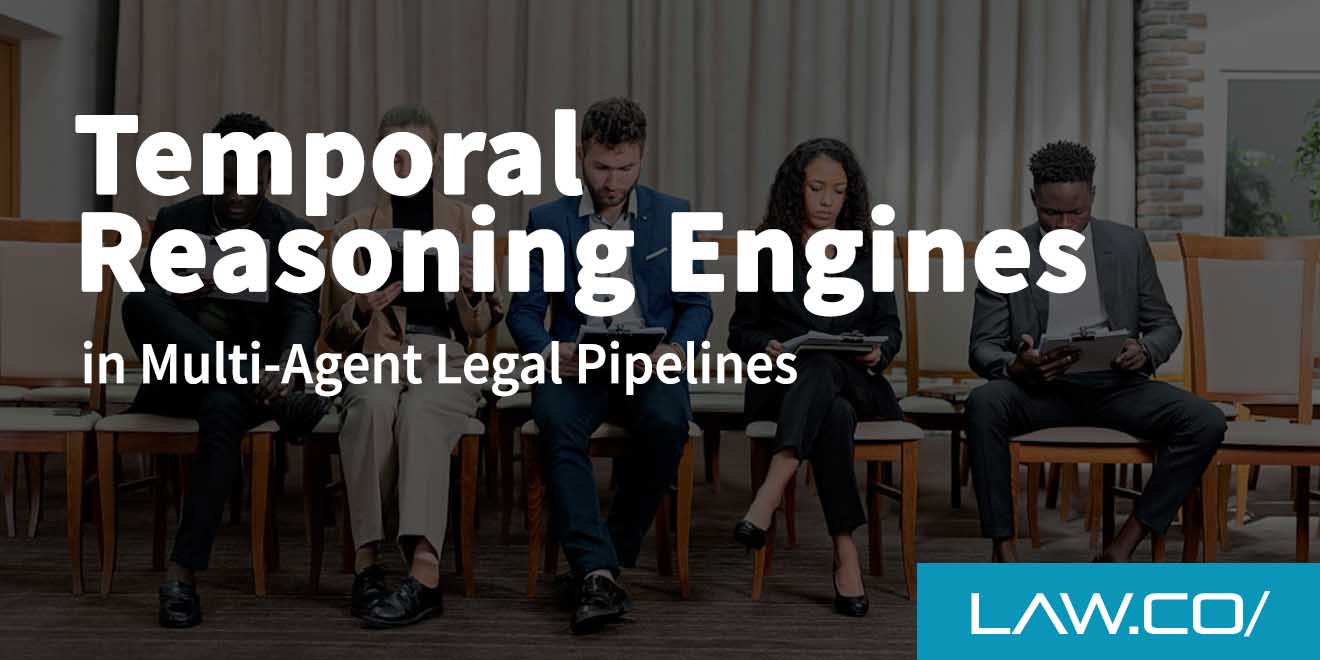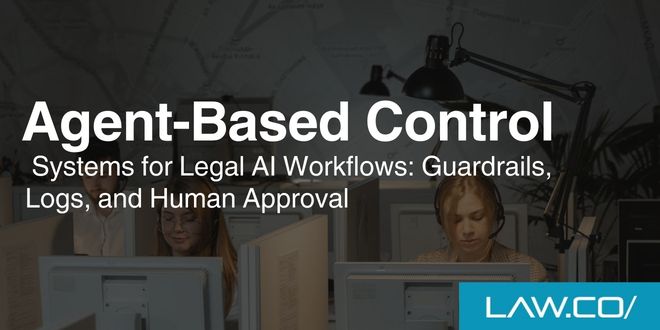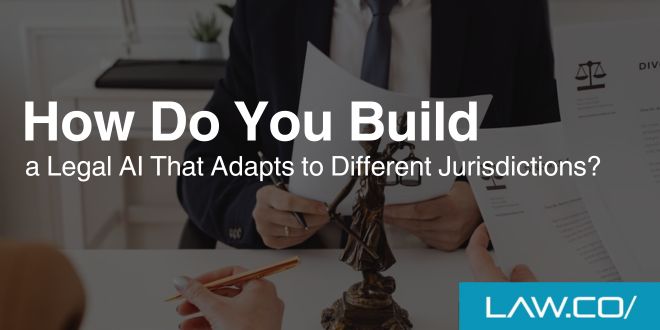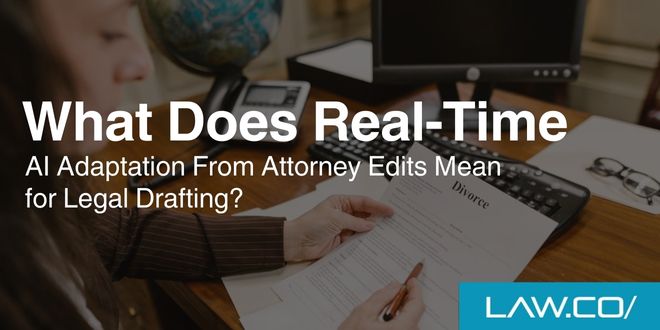

How Great Lawyers Are Adapting to a Legal AI World
In some ways, great lawyers are traditionalists. They recognize the vast history of the law. They've learned from previous generations. They've spent years, if not decades refining their practice.
But they're also highly adaptable. The law is always changing, and only the most skilled lawyers can keep up with it – and anticipate where it's going next. But that adaptability also comes in handy with respect to changing technologies – especially when those technologies have the potential to disrupt the legal profession.
Over the past few years, artificial intelligence (AI) has made several profound leaps forward, impacting lawyers directly and equipping them with tools that ostensibly set them up for time savings, cost savings, and even greater accuracy and precision.
How exactly are great lawyers adapting to this new world of legal AI?
The Legal AI World: If You Can’t Beat ‘Em, Join ‘Em
Legal AI is a general term for AI-powered software designed for lawyers to use. Depending on what type of legal AI you're using, that probably means you'll get access to sophisticated legal research tools, document drafting with the help of generative AI, proofreading and review features, and much, much more. Collectively, these features have the ability to automate some of your most repetitive tasks, greatly accelerate your most tedious tasks, and ultimately allow you to focus more on the harder problems and human aspects of your job.
Many lawyers have been reluctant to embrace legal AI, and with understandable reasoning in mind. So far, AI has been impressive, but it's certainly not perfect. AI is capable of “hallucinating,” or making up facts on the spot, and more than one lawyer has already gotten in trouble for relying on these inaccurate pieces of information. On top of that, AI legal writing still isn't on par with the quality of the best human writers, and it can't come close to solving the difficult problems that competent lawyers need to solve.
That said, these weaknesses are relatively minor and easy to compensate for. AI hallucinations are quite rare, and their consequences can be avoided with a simple fact check. Legal writing drafts can be punched up by a human supervisor. And you can choose to use legal AI only for the tasks and responsibilities for which it's suited.
Legal AI isn't going away, and it's only going to get better, so great lawyers recognize the importance of learning to use this valuable tool.
Why Legal AI Won’t Be Stopped
How can we be so confident that legal AI isn't going away?

· Unignorable benefits. First, the benefits are simply unignorable. Even if you have some reservations about the quality of legal AI or its range of abilities, you should be able to recognize that AI is incredibly powerful in fields where it's best applied. It can conduct legal research much faster and more efficiently. It can draft contracts and other legal documents hundreds of times faster than a human, so even if it's not perfect, it's hugely time saving. And on top of all that, many legal AI products are free or inexpensive, making them well worth integrating into your law firm.
· Competitive pressure. It's fine if you have the rigid stance that these tools aren't worth using, but that's not stopping other lawyers and law firms from taking advantage of them. Your toughest rivals and competitors may already be using legal AI, functionally multiplying their productivity and quality of work without investing much more money to do it. Accordingly, there is significant competitive pressure for lawyers and law firms to adapt. If you don't learn how to use legal AI soon, you may find yourself left in the dust.
· Constant improvements. Legal AI is increasingly being trained on legally relevant materials, giving it more information with which it can improve itself and ultimately provide better results. AI developers are also constantly reviewing hallucinations, errors, and other problems to uncover the root causes and sort them out. In other words, legal AI is constantly being improved, with greater capabilities, more accuracy and precision, and even easier usability.
· Tech breakthroughs. While many of these improvements are gradual and iterative, major tech breakthroughs can disrupt the legal AI game even further. Generative AI was a totally breakthrough technology, and it completely reshaped how we thought about AI. In the near future, we expect to see similarly explosive AI breakthroughs, any of which could change the legal AI game forever.
· The long course to the future. Today, legal AI is incredibly powerful but noticeably limited, and nobody in their right mind thinks it can replace human lawyers. But the course to the future is a long and tangled one, and we're not exactly sure how AI is going to develop from here. In the next few years, it's unlikely that AI will evolve to the point of unrecognizability. But in the next few decades, we may see the revelation of technology that genuinely threatens certain legal roles. Great lawyers understand this hypothetical timeline, and they're motivated to adapt as early as possible so they can ride the technological evolution wave – rather than being overtaken by it.
The Pitfalls of Overreliance on Legal AI (and Bad Lawyering)
By now, you’ve probably heard about the lawyers who got caught citing a fake case generated by legal AI. It's one of many examples of lawyers overly relying on legal AI. If you use legal AI blindly, accepting whatever it generates as gospel truth without checking it, it's going to hurt you, your clients, and your practice.
The proper use of legal AI requires conscious, methodical human guidance. It's your responsibility to feed the right prompts to your generative AI tool. It's your responsibility to double check everything it produces for accuracy. It's your responsibility to improve whatever it writes. And it's your responsibility to ethically disclose that you're using AI as part of your practice.
If you don't employ these measures, it's possible, or even likely that you'll eventually run into a problem. Even if you get lucky and manage to continue getting great results for your clients, you'll still be facilitating a possible ethical violation if you don't disclose your use.
In some ways, excessively relying on AI is just a novel form of bad lawyering. If you're not putting in the work, and you're not properly informing your clients or the people around you, it's going to hurt your practice.
The Limitations of Dismissing or Refusing to Use Legal AI
On the other end of the spectrum, however, it's possible to face indirect consequences for totally dismissing or refusing to use legal AI. If you disregard AI altogether, you'll sentence yourself to spending far longer than necessary on simple and routine legal tasks. You'll commit yourself to spending more money than you need to on paralegals and junior lawyers. You'll set yourself up to be completely eclipsed by the productivity and capabilities of close competitors who do integrate legal AI into their work.
These effects will only get worse over time, as legal AI becomes more powerful and more accepted. There's a conceivable future in which the vast majority of lawyers and law firms lean so heavily on AI that any lawyer or practice without it will not be able to meaningfully compete.
How Great Lawyers Are Adapting to a Legal AI World
So how exactly are great lawyers adapting to this legal AI world?
· Embracing AI. Great, adaptable lawyers have chosen to embrace AI. That doesn't mean they use it every day. It doesn't even mean they use it personally. It means they recognize that legal AI is a positive force and a powerful tool, and they're willing to take advantage of it in at least some ways. They don't dismiss AI as a novelty, and they recognize that legal AI is only going to become more powerful and more influential from here.
· Experimenting with AI. Forward thinking lawyers have at least experimented with AI, even if they haven't totally integrated it into their practice. They want to know exactly what this technology can do, what its limitations are, and how it could possibly increase their own potential. For some people, this is a practical training ground, allowing them to use legal AI better in the near future. For others, this is a lesson that they should hire someone else to handle the AI side of the practice.
· Practicing prompt engineering. These lawyers are also polishing AI-specific skills like prompt engineering. Prompt engineering is the deliberate practice of structuring and wording your AI prompts in such a way that guarantees, or maximizes the probability of relevant results. Even subtle differences in how you phrase things can lead to different outputs, so it's important to understand how AI works and build the skills necessary to take full advantage of it. This is a difficult skill for seasoned lawyers to learn, but it's an incredibly valuable one.
· Blending the best of humans and AI. Some people have gotten lost in the narrative that AI is such a game changing technology that it's an existential risk for many white-collar careers. Others are such rigid traditionalists that they refuse to even give the technology a chance. The best, wisest lawyers understand that legal AI is a crazy powerful tool, but that it's still not as effective or reliable as a human lawyer. Accordingly, they structure their own law practice to support the best of both humans and AI.
· Hiring tech-forward candidates. Even if you don't like the idea of using AI in your practice, you may recognize the value of hiring candidates with lots of technology experience. You may be at a point in your own legal career that requires you to focus on high-level problem solving, client interactions, and other responsibilities that legal AI can't handle, but it pays to have a foundational backbone of AI-wielding associates. Adaptable lawyers and law firms are already attempting to hire people selectively and reshape their firms to better support this breakthrough technology.
· Hiring fewer assistants. Of course, with the power and prevalence of legal AI, paralegals and assistants are becoming slightly less necessary. While these critical staff members still play an important role in the function of the average law firm, lawyers and law firms simply don't need as many of them as they used to.
· Reviewing everything. Legal AI has gotten a lot better than it used to be, and it's only going to get better from here. AI hallucinations are becoming rarer, the writing is becoming better, and the research is being done more thoroughly. Even so, great lawyers recognize that everything generated by AI needs a thorough human review. It's the only way to catch mistakes before they have a chance to threaten your clients or your practice.
· Disclosing everything. Similarly, the best lawyers in the business understand the consequences of ethical violations, and they take no risks when it comes to committing them. If they choose to use legal AI in their practice in any form, they proactively disclose it.
Legal AI is here to stay, and it's only going to become more powerful and more important. As long as you use it responsibly, it has the power to enhance and potentially even transform your legal practice. If you’re ready to see what legal AI can do for your law firm, sign up for a free trial today!

%201.svg)


